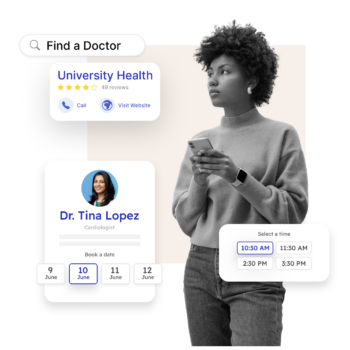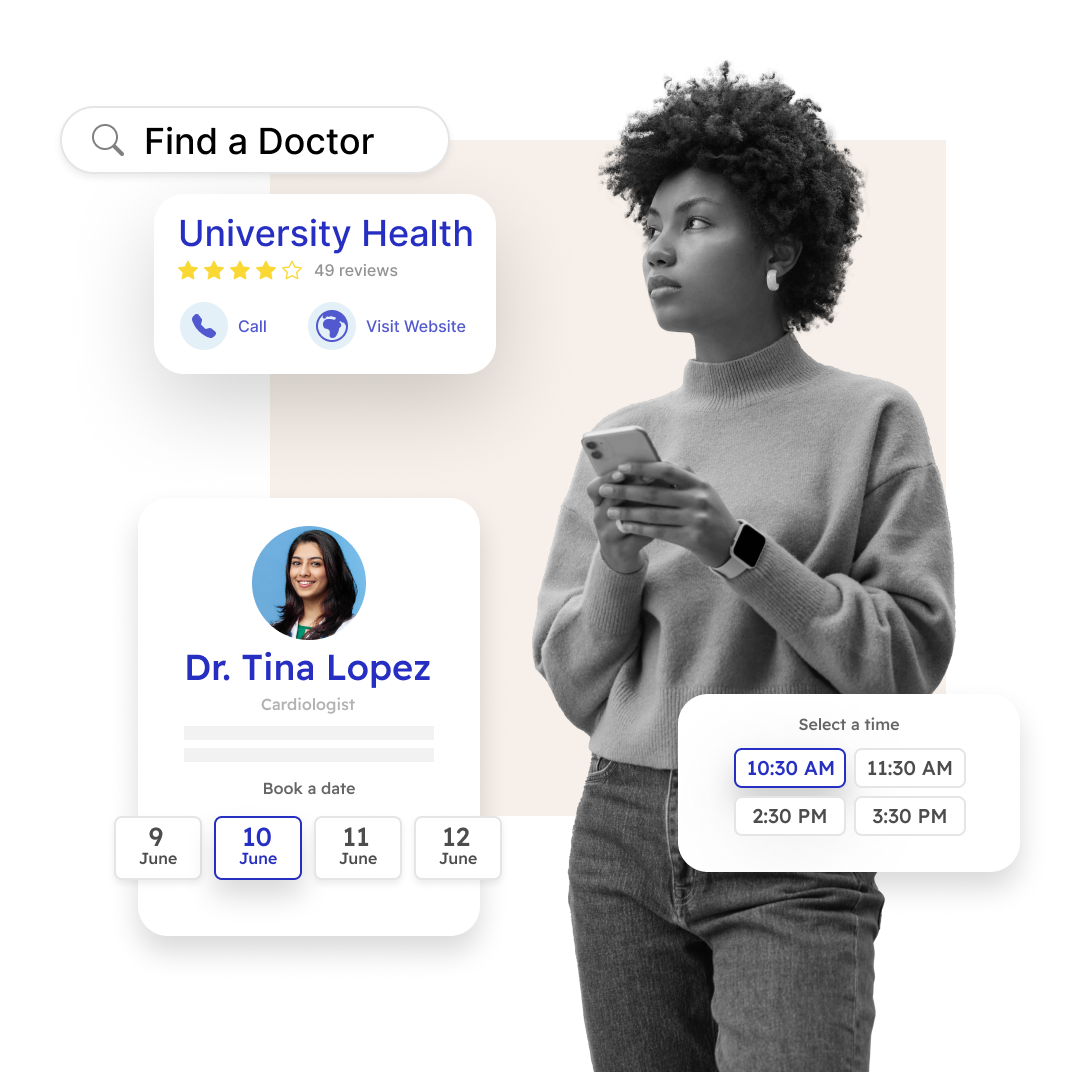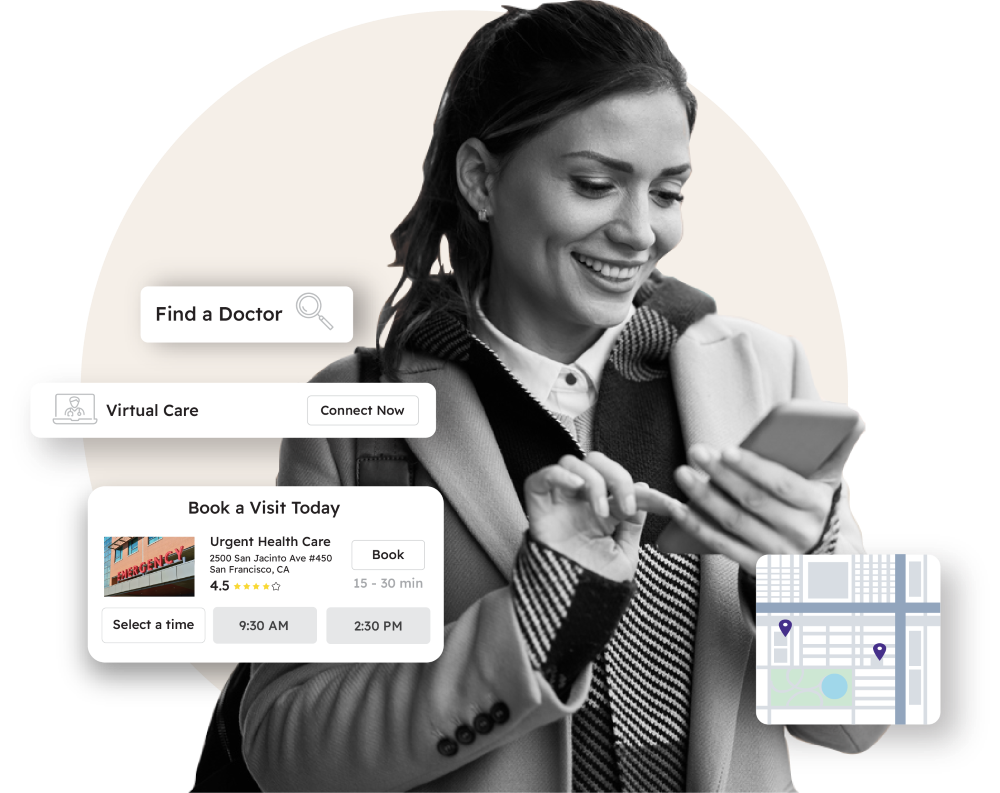What Healthcare Can Learn from Booking Services
The retailization of healthcare is transforming the role of digital. And it’s no surprise, as consumer expectations are driving change to make sure digital channels are fast, seamless, and provide real-time care options. Provider availability is inventory, and the storefront varies amongst same-day clinics, telehealth, primary care, and other modalities of care.
 Customers have options, and getting them to drill-down and self-select the right care option is a digital challenge and opportunity. Information must be instantly available through search, and the ability to get things done — however, wherever, and whenever the customer wants on whatever device they choose – is a core tenet of an effective digital front door.
Customers have options, and getting them to drill-down and self-select the right care option is a digital challenge and opportunity. Information must be instantly available through search, and the ability to get things done — however, wherever, and whenever the customer wants on whatever device they choose – is a core tenet of an effective digital front door.
While there are many lessons to be gleaned from retail, travel booking and online reservation platforms offer a blueprint for a successful digital presence.
A lesson for online success
Take online travel booking. In the pre-digital world, there were similarities between making and securing travel plans and getting healthcare needs taken care of. Both required working through a gatekeeper. Using travel agents or personally dealing with multiple airlines, hotels and more for travel. For healthcare, a patient needed to deal directly with a doctor, emergency room staff, or a hospital’s administration process.
The advent of travel aggregator websites simplified the entire process and allowed consumers to research, plan, book and pay for travel at one convenient spot. Healthcare networks have the opportunity to provide that level of service with a similar user experience.
The Providence Digital Innovation Group offered a checklist for the ideal digital healthcare platform beginning with it should be transparent, all-in-one, and easy to use.
Providence went on to highlight three key features:
- Simple navigation. This means patients can choose between care at home, in a clinic, or via a virtual office visit on a single webpage that includes defining the type of visit requested, transparent pricing, and the ability to purchase products and service.
- Virtual care. The Covid pandemic made virtual care commonplace and, in many cases, necessary. Healthcare networks need to offer virtual options such as video, voice, or even just chat accessible on-demand through scheduled appointments or even asynchronously with patients and providers communicating through back-and-forth messaging.
- Engagement. Here’s where digital-decision makers should take note of retail’s strategy of driving engagement and providing personalization through outreach and creating a digital platform that includes apps, services, and information.
Similar to lessons offered by the travel industry, online reservations were transformed by the digital revolution. Instead of calling a restaurant and waiting to speak with someone to find out when, or even if, a reservation was available, people can now go online to read reviews, look at menus and book reservations.
That consumer-friendly process is now the expectation for people scheduling a healthcare visit. Just a few years ago an overwhelming majority of patients made appointments via a phone call, but a study by Accenture found 77% of patients want to be able to book, change, and cancel appointments online. That same study found 60% of those patients would even change providers instead of waiting to book an appointment.
The solution for healthcare providers is to offer a digital platform that lets patients view the availability of providers by location — in real time — and then book, change or cancel appointments from one digital spot. The ideal platform allows the patient to choose the type of care they want and even sends reminders to help reduce the no-show rate. A fully optimized digital healthcare platform can even help guide patients through the booking process and help them determine the best care option for their specific situation.
The digital revolution has fully arrived for healthcare, but e-commerce, travel booking and restaurant reservations provide a roadmap of successful digital best practices as healthcare companies navigate the online customer experience.






